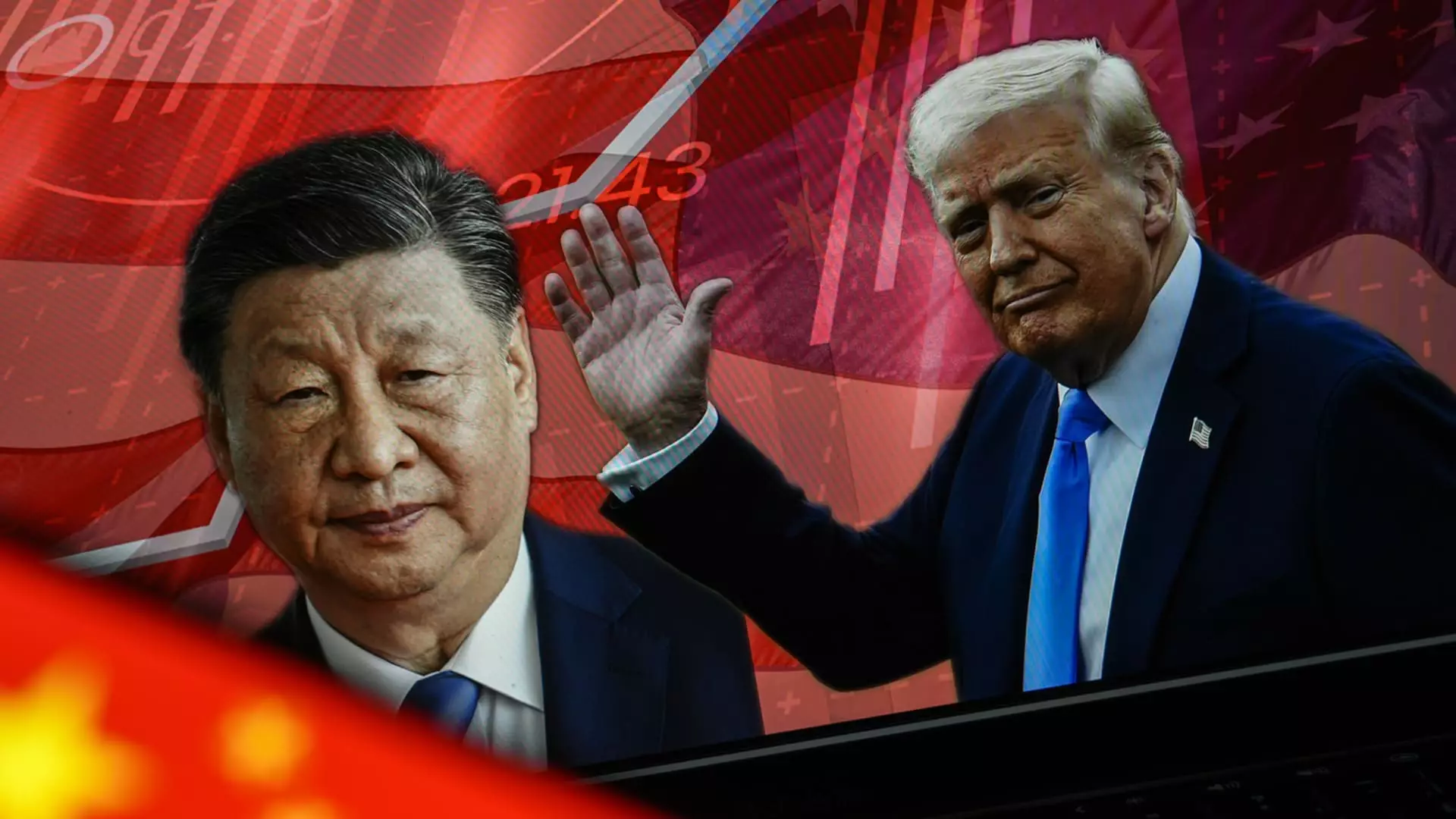In an audacious move reflective of its escalating tensions with the United States, China recently declared its intention to pivot away from responding primarily through tariffs. Instead, Beijing has decided to exercise its economic clout by targeting the American services sector, an area where it holds significant leverage. This strategic shift is not merely a reaction but a calculated approach to assert its position in the ongoing trade war. By denouncing U.S. tariffs as a “joke” and threatening to ignore any further increases, China is reshuffling the deck in this high-stakes economic chess match.
As the Trump administration ramped up tariffs on select Chinese goods—some soaring as high as 245%—it seemed to play into a predictable narrative of tit-for-tat retaliation. Yet, China’s response feels less like a reactive maneuver and more like a proclamation of determination. By focusing on non-tariff barriers, Beijing signals that it possesses an arsenal of tactics designed to inflict pain on U.S. interests. Such measures could include export controls on invaluable rare-earth minerals and rigorous antitrust actions against major American corporations like DuPont and Google. The escalation not only reflects China’s intent but also serves as a reminder that economic battles can extend well beyond mere tariffs.
Insidious Measures and Their Impacts
The ramifications of China’s new approach have the potential to sweep across multiple sectors of the U.S. economy. For instance, the introduction of the “unreliable entity” list could serve as a way for Beijing to cripple American firms operating within its borders, thereby chilling foreign investment and driving a wedge in corporate relations between the two nations. Companies such as PVH and Illumina have already been affected, demonstrating that non-tariff barriers can have an immediate and chilling effect on American corporations.
This could create a cascading effect that permeates various aspects of economic interaction. China’s tightening grip on its exports, particularly of critical minerals essential for technology and defense industries, raises concerns for U.S. companies that depend heavily on these resources. With the U.S. struggling to achieve self-reliance in sectors such as semiconductors and clean energy technology, this shift portends significant long-term difficulties for American players.
With restrained access to raw materials and increasing scrutiny over businesses’ operational conduct, the implications are stark. The aviation sector, for instance, might be one of the hardest-hit. The order to halt deliveries of Boeing jets creates a two-fold crisis: it compromises Boeing’s market share and threatens employment and investment in the U.S. The psychological impact, in tandem with economic realities, could lead to a more conservative approach towards partnership avenues that historically have been robust.
Political Ramifications in Focus
The political landscape is as significant as the economic one when considering China’s latest moves. Their targeted approach, especially in sectors like media and education, aims to undermine American cultural exports and appeal. By discouraging travel to the U.S. and reducing the number of imported films, Beijing intends not only to affect revenue but to weaken soft power—a crucial component of American global influence.
Public sentiment around these decisions has been bolstered by state media’s messaging, which vigorously promotes the use of domestic alternatives over American technology. This has dangerous implications, as it could lead to a more insular society resistant to foreign exchange of ideas and innovation, which has previously propelled economic growth on a global scale. In a world where technological prowess and intellectual exchange often define economic success, a tilt toward isolationism not only risks economic stability but also societal advancement.
With immigration and travel to the U.S. increasingly scrutinized, educational pipelines may see reduced international representation. There exists a fear that decreasing numbers of Chinese students in American universities could signal a detrimental shift in the future supply of skilled labor, which the U.S. economy has often relied upon to innovate and compete.
The Stalemate and Future Implications
While the potential for negotiation still flickers in the background, it seems overshadowed by increasing hostility. The tendency of political leaders to regard economic actions as tools of national policy complicates the path to a resolution. The ongoing rhetoric surrounding trade negotiations hints at diverging pathways where escalation appears more likely than reconciliation. Trump’s administration has positioned itself firmly, requiring concessions from China before any discussions can take place.
Furthermore, the need for both sides to re-evaluate their approaches is evident. Continued hostility from China could lead to deeper economic and cultural divides, distancing both nations from a cooperative future. As forecast by several analysts, the next phases of this trade war will not only reshape supply chains but might also encourage the decoupling of deeper, people-to-people ties crucial for global collaboration. Failure to address these tensions may push both nations into an economic cold war, one without clear victors and where the bystanders—the global community—could bear the brunt of the fallout. The ability of these two economic powerhouses to navigate this treacherous terrain will undoubtedly dictate the landscape of international trade for years to come.

